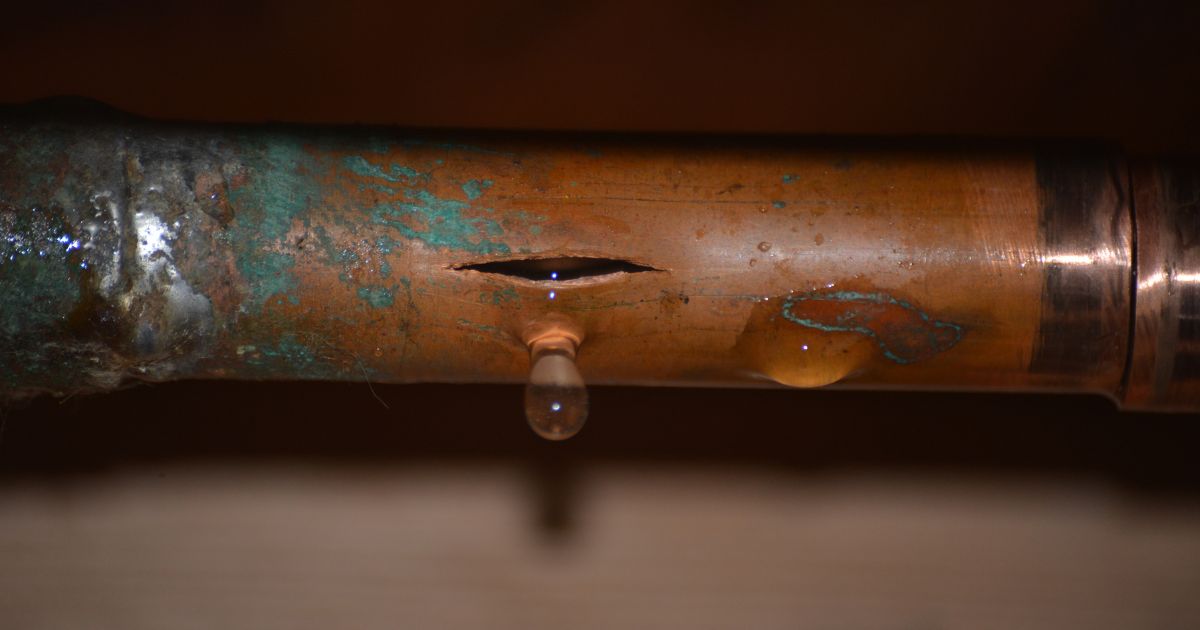Are Asbestos-Cement Pipes Contaminating Water?

In the early 1980s, the United States Environmental Protection Agency (EPA) banned all asbestos-related products, which halted the manufacturing and installation of asbestos-cement (AC) pipes. Although these asbestos-lined pipes were removed, many existing AC pipes are still in use. Today, AC pipes account for more than 600,000 miles of the United States and Canada’s water distribution pipes.
How Do Asbestos Fibers Enter Water Sources?
Asbestos can enter water sources in three main ways. The chances of developing mesothelioma from drinking water depend on the amount of asbestos in the water and how long you have been drinking the contaminated water, though exposure to asbestos in any concentration is dangerous.
- Outdated Pipe Corrosion
Asbestos cement pipes, used before the 1980s, could still be present in your home. After decades of use, wear, and corrosion, the safety of unmaintained piping can pose risks. Natural disasters, bad weather, and construction demolition deliver potential danger to areas where AC pipes provide water. A rupture in these structures can occur and compromise the supply and quality of water.
- Natural Disasters and Deposits
Natural disasters can create problems in your home’s infrastructure and stability. Remember to check your water quality after a natural disaster, even if it appears clear. Floods, earthquakes, and landslides can disturb naturally occurring asbestos deposits. Asbestos fibers from these natural sources are easily carried by wind, flood, or rain waters into communities and local drinking sources.
- Asbestos Debris
Demolition after fires, floods, or other disasters aggravates asbestos fibers. Moving asbestos fibers result in particles entering streams, rivers, lakes, and wetlands, resulting in waterline contamination and public health concerns. Debris removed from a site also encompasses dangerous asbestos if not disposed of correctly. If a site is examined specifically for asbestos, cleanup workers can rest assured that no asbestos is present. Many times, improper asbestos abatement techniques increase the risk of second-hand exposure.
Regulations enforced by the US Environmental Protection Agency (EPA) require public water suppliers to test all drinking water regularly. If something dangerous presents itself in your water as a threat, you must be informed when contaminants exceed certain levels.
Unfortunately, even though the dangers of asbestos were exposed in the 1980s and new regulations were set, these new standards did not require removing old pipes. Old pipes are still underground and have reached or are reaching the end of their lifecycle.
What Health Conditions Can Asbestos Exposure Cause?
Asbestos dust has carcinogenic effects when inhaled, which causes mesothelioma, lung cancer, and asbestosis. While most cases of asbestos-related mesothelioma are diagnosed in people who have been around asbestos fibers for years, there is a risk that drinking water contaminated with asbestos could cause health conditions.
Does Asbestos Exist in Drinking Water?
The answer is likely yes. Asbestos occurs naturally, and many pipes were constructed using cement containing asbestos. The water mains using old pipes decay, so asbestos can be released into the drinking water. In addition, those using well water are at risk of having asbestos in the water since there is no regulation on private wells. The Safe Drinking Water Act requires public water supplies to comply with asbestos and other contaminant levels standards. The EPA has set the safe level of asbestos at seven million fibers per liter. Levels above this may increase the risk of benign intestinal polyps.
The Plainfield Environmental Lawyers at Herold Law, P.A. Assist Clients Who Have Been Exposed to Asbestos
If you seek insurance claims after asbestos exposure, Plainfield environmental lawyers at Herold Law, P.A. are available to represent you. We will help you after wrongful asbestos exposure. Call us at 908-647-1022 or complete our online form to schedule a confidential consultation. From our office in Warren, New Jersey, we proudly represent clients in Plainfield, Warren, and throughout New Jersey.




 908-679-5011
908-679-5011



